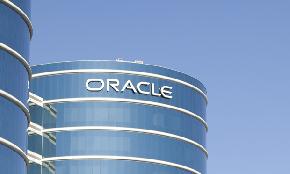The Global Real Estate Sustainability Benchmark (GRESB) is an industry-driven organization committed to assessing the sustainability performance of real estate portfolios (public, private, and direct). This assessment takes the form of an annual rating based on a comprehensive portfolio level survey of how a real estate fund owner or manager is performing in terms of building energy efficiency, environmental and social impact, and sustainable governance.
With this information, GRESB aims to improve transparency and provide critical business decision information for commercial real estate (CRE) portfolio investors. A cornerstone philosophy of GRESB is the idea that sustainable funds and portfolios are a safer and more valuable investment – due, in part, to lowered operating and maintenance costs and the fact that market drivers are increasingly rewarding energy efficiency. As a result, a positive GRESB score is an indication that investors will get a better return on their investment.
Every year, GRESB provides a 50-question survey to portfolio owners to gather information to establish the rating. The GRESB Survey assesses the sustainability performance of real estate portfolios through seven key metrics, including critical building energy performance metrics.
For portfolio managers, participating in the annual Survey is a valuable exercise to identify building inefficiencies across the portfolio and to identify opportunities for improvement where sustainability performance is lacking. Obtaining a GRESB rating is also a valuable resource in displaying commitment to achieving sustainable practices.
What can I do to Ensure my Building is Ready for the GRESB Survey?
A significant part of the GRESB Survey (25%) is based on individual building energy consumption and GHG emissions. There are various cost-effective ways to improve property performance in these areas and achieve a more favorable GRESB rating. In addition to improving the energy consumption component of your GRESB Survey, the mere act of performing any of these services portfolio-wide (as a “best practices” policy) will increase your portfolio’s GRESB score.
Benchmarking
Benchmarking is the process of measuring, comparing and tracking energy and water consumption. Benchmarking helps access a facility’s energy consumption and overall carbon footprint.
Benchmarking measures a building’s performance by quantifying key performance metrics which include energy consumption, energy cost, emissions, or Energy Star rating. By comparing these performance metrics to similar buildings, building cost reduction and energy reduction can be determined, as well as green label potential.
Energy Audits
The Energy Audit is a hands-on assessment of a building’s energy usage, its energy using equipment, and building conditions that may cause excessive energy consumption. After the level of energy consumption is accessed, information on energy efficiency measures can be recommended.
Retrocommissioning
Retrocommissioning, otherwise known as building optimization, is the process of closely examining how building equipment and systems function. Retrocommissioning improves a building’s operations and maintenance procedures to enhance overall building performance. Retrocommissioning can often resolve problems that occurred during design or construction, or address problems that have developed throughout the building’s life.
Green PNA
A Green PNA, also known as a Green Property Condition Report (PCR), is essentially a combination of a standard Physical Needs Assessment (PNA) and an energy audit. Green PNAs provide in-depth information on the building condition and increasing operational efficiency. Green PNAs may access water-saving measures, renewable energy use, and potential recycled materials for renovations or additions, all used to increase operational efficiency.
Don’t Forget Certifications
Incidentally, lowering your building’s energy and carbon footprint through the aforementioned initiatives may also make you eligible for green certifications, which in themselves are a way to boost your GRESB score! Building certifications account for 11% of the GRESB Survey.
Certifications can be used to monitor the integration of sustainability within a portfolio. Partner Energy provides green certification services including: Energy Star, LEED, GreenPoint Rated, and many more.
Time is of the Essence!
The recurring nature of the GRESB Survey means that there is no wrong time to begin improving the energy and sustainability performance of buildings in your portfolio. The 2015 Survey is open now but will close on July 1, so now is the time to participate in GRESB! Additionally, first year participants are eligible for a “waiver” year that enables a portfolio to receive an actual score but keeps it private for internal company use only.
Creating a sustainable portfolio is becoming a real estate industry standard; the GRESB Survey offers a comprehensive solution enabling owners and fund managers to better understand sustainability performance at all levels of their organization. GRESB participation presents a great opportunity to address individual building shortcomings and implement sustainable measures. Join today!

















 Copyright © 2024 ALM Global, LLC. All Rights Reserved.
Copyright © 2024 ALM Global, LLC. All Rights Reserved.